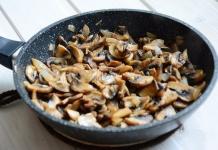The treatment of cystitis is a long and complex process. Despite the fact that antibiotics are the main components of treatment, it should be understood that these are quite aggressive drugs that can provoke multiple complications. It is especially difficult to find suitable antibiotics for children and the elderly. In this case, doctors recommend using a bacteriophage for cystitis.
Bacteriophages are a natural replacement. Preparations based on them can cope with a wide range of infectious diseases. By themselves, bacteriophages are viruses that feed on one specific type of bacteria and at the same time do not have any effect on the body's systems. In addition, bacteriophages are perfectly combined with other types of treatment, including antibiotics.
Such drugs are prescribed to patients in the following cases:
- purulent processes affecting the lungs and respiratory organs;
- urological diseases, including cystitis and urethritis, as well as kidney diseases, such as pyelonephritis, which often acts as a complication of inflammation Bladder;
- gynecological diseases;
- eye diseases;
- infectious and purulent processes in the oral cavity;
- bowel disease;
Before you start taking this group of drugs, you need to identify the pathogen. For example, a staphylococcal bacteriophage will only be effective against infections caused by this pathogen.

The use of bacteriophages in the treatment of cystitis
Treatment of cystitis with the use of bacteriophages has whole line benefits. These include:
- absence side effects and minimal risk of developing allergic reactions, which is typical for most antibiotics;
- absence negative impact on the immune system;
- the possibility of using for the treatment of pregnant and lactating women, as well as children from birth;
- lack of addiction to drugs. Also, resistance is not developed in the bacteria themselves;
- rapid penetration to the focus of inflammation. After taking the medicine, significant relief occurs within a few hours.
The dosage of drugs based on bacteriophages in the treatment of cystitis is determined solely by the attending physician. The dose depends on the age of the patient, the complexity of the disease and the general condition of the body. Bacteriophage is both taken orally and microclysters and lotions are made on its basis.
Coliproteus bacteriophage
Often, with cystitis, a coliproteic bacteriophage is prescribed, how to take the remedy correctly, the attending doctor should tell.

There are the following dosage regimens:
- Locally, through the drainage system in the bladder - injected 50 ml 2 times a day.
- Inside - the daily dose is 100 ml. The drug is taken 30 minutes before meals. If necessary, the indicated amount of the substance is divided into 2 doses.
The course of treatment by means of this group is from 7 to 10 days. A more accurate dosage can only be determined by a doctor. Before starting therapy, it is recommended to carefully study the attached instructions for use. In addition, using the coli bacteriophage for cystitis, you can study the reviews of real people.
Important! When treating with bacteriophages, sterility should be observed. If the liquid becomes cloudy, its further use becomes impossible and even dangerous for the body.
This drug is most often prescribed for cystitis. It is used for oral administration, irrigation, applications and lotions in children. The dosage of the drug depends on the age of the patient. The following treatment regimens are being considered:
- 0-6 months - 5-10 ml per day;
- 6-12 months - 10-20 ml per day;
- 1-5 years - 20-30 ml per day;
- 3-8 years - 30-40 ml;
- from 8 years - 40-50 ml.
Before taking bacteriophage for cystitis, read the reviews to help you get an accurate idea of the effectiveness.
Contraindications
The drug has no contraindications. An exception is individual intolerance to some of the components that make up the drug.
Reviews
Thanks to the feedback of patients and attending physicians, you will be able to get a more accurate idea of the effectiveness of the products of the presented group.
Alena, 34 years old
I took bacteriophage coli. At one time I caught a cold and for several years I have been suffering from periodic manifestations of cystitis. During this time, I drank dozens of antibiotics, but there was no result. Having already lost hope, I went to a paid specialist who took tests from me for bacterial culture. After the causative agent of the infection was identified, I was prescribed a bacteriophage.
I must say right away that the drug is really effective and safe. The course of treatment lasted 10 days. Since that time, I have not had a single relapse. Among the shortcomings of the drug, I will note the cost and certain storage conditions. Also, I didn't like the taste of the product. Perhaps there are no more drawbacks to the drug. Now I recommend it to my friends.
Elena, 23 years old
It was my first time with cystitis. At first I thought that I just had a cold, but when I went to the doctor, I heard the diagnosis. Since childhood, I have been intolerant to some antibiotics, so I was prescribed a proteus bacteriophage. This is a yellowish liquid that is sold in a transparent glass bottle. Due to inattention, I had to buy the medicine twice. The fact is that the first time the medicine became cloudy, I had to throw it away. The product itself is very effective and safe.
Evgeny Alexandrovich, urologist
Bacteriophages have been used in medical practice for a long time, although they have been prescribed as a separate drug relatively recently. I can say that this is a good alternative to antibiotics. The only drawback of this group of drugs is their narrow focus. In simple words if you want the tool to help you, you must first pass tests and identify the pathogen.
Varieties of bacteriophages
The following drugs can be prescribed as an independent therapeutic agent, as well as in complex therapy.
- Intestifag - a remedy can be prescribed to children from birth. However, it is worth remembering that in infants in the first couple of days after the start of treatment, skin reactions and profuse regurgitation may be observed. To save the solution, it is necessary to collect it with a sterile needle.
- Bacteriophage Kolya - effective against cystitis caused by Escherichia coli. The tool is also well tolerated. Dosage and dosage regimen are determined by the attending physician.
- Streptococcal bacteriophage is another analogue that may be effective for the treatment of cystitis in adults and children. The dosage regimen and dosage are prescribed in the instructions, but sometimes they can be adjusted by a specialist.
- Intesti bacteriophage in cystitis is a highly effective remedy that is used both as a monodrug and as part of complex therapy. Before starting treatment, it is necessary to consult a doctor and take an analysis for bacterial culture.
- Pyobacteriophage is an almost complete analogue of the above agents, effective against Staphylococcus, Streptococcus, Proteus, Pseudomonas aeruginosa, Klebsiella pneumoniae, Escherichia coli. The tool is safe and can be prescribed from an early age.

Inflammation of the bladder most often occurs due to the introduction of pathogenic microorganisms. First of all, it is Escherichia coli and staphylococcus aureus. Therefore, the primary task in treatment is to destroy pathogens with the help of. The problem is that antibiotics have an effect not only on the pathogenic, but also on the normal microflora of the body and cause multiple side effects. In addition, infectious agents are increasingly resistant to antibiotics, and therapy is not very effective. Bacteriophage in cystitis is considered by physicians as a promising method of treating the disease.
The peculiarity of phages is that they act selectively on pathogenic bacteria and do not suppress the normal microflora.
Phages are used in the treatment of mainly purulent-inflammatory diseases. Based on them, preparations are made whose viruses act on specific strains of bacteria. Also, drugs destroy pathogens and stimulate local immunity, which is especially important in the presence of a chronic infection. The use of such medicines is relevant in the treatment of people with allergies to antibiotics and with infections caused by several types of pathogens at once. Moreover, bacteriophages can be combined. They do not affect each other's performance.Phage therapy is used as monotherapy and shows good results in combination with antibacterial treatment. Phage-based drugs are indicated as prophylactic agents for people suffering from recurrent infection.
This group of drugs is completely harmless, has no contraindications and can be used in childhood.
Benefits of phage treatment
The use of antibiotics is always the risk of allergies, immune suppression, dysbacteriosis and the formation of resistance of microorganisms to the active components of drugs. Against this background, the treatment of cystitis with bacteriophages has its advantages:
- have a selective effect - they eliminate only pathogenic pathogens, including those that are able to form protective biofilms;
- safe for the normal microflora of the body;
- do not affect the work of the liver and kidneys;
- enhance the effect of antibiotics when used together;
- able to replace antibiotics in bacterial resistance and in the treatment of chronic infection;
- indispensable in the presence of contraindications to taking antibiotics;
- rarely cause allergic reactions;
- allowed to use during pregnancy, breastfeeding, in childhood and old age.
- compatible with all drugs.
M. Kameneva
Cand. biol. Sci., Senior Microbiologist, Department of Diphtheria Toxoids and Bacteriophages, NPO "Biomed"
What medicine should be preferred if the cause of the disease is a pathogenic microflora? In any pharmacy you will be offered a wide range of antibiotics, but sometimes not only patients, but even pharmacists and doctors do not know about bacteriophages. And this is understandable. Throughout their history, bacteriophages have experienced a general interest in them in the era of their inception, and almost complete oblivion in the 60-80s. However, in the last 5 years, interest in them has revived.
Both antibiotics and bacteriophages act directly on microbes, only antibiotics destroy not only pathogenic, but also normal microflora, disturbing the natural balance, while bacteriophages act only on pathogenic microorganisms. Such selective action is due to their nature. Bacteriophages are viruses of bacteria. When meeting a sensitive microbial cell, the phage penetrates inside it, switches its mechanism of action to reproduce its own kind, which, breaking the cell membrane, attack other microbes tenfold. Lysis becomes spontaneous, and the release of unwanted microbes occurs in a matter of hours.
Phagolysis - the destruction of bacteria by phages - is a natural process that occurs in an organ affected by bacteria during spontaneous recovery. And if, for some reason, self-healing does not occur, the body can be helped by introducing the appropriate bacteriophage obtained under production conditions. The phage is named after the microbe it acts on. Salmonella, typhoid, dysentery, staphylococcal, Klebsiella, Pseudomonas aeruginosa, Proteus, coli, streptococcal - this is an incomplete list of phages currently produced by domestic enterprises. We should also mention complex preparations, which are a set of phages for several pathogens at once: this is a pyobacteriophage for the treatment of purulent-septic diseases and an intestibacteriophage against intestinal infections. The main producers of bacteriophages in our country are NPO Immunopreparat (Ufa), an enterprise for the production of bacterial preparations (Nizhny Novgorod), MP Biofon (Saratov), NPO Biomed (Perm).
Clinical practice has shown the effectiveness of the use of bacteriophages in infectious diseases of the gastrointestinal tract, as well as in inflammatory diseases of the sinuses, oral cavity, upper respiratory tract, genitourinary system, cholecystitis, etc., caused by bacteria sensitive to the phage.
However, phages, these ""natural orderlies"", can be used not only for treatment, but also for the prevention of infectious diseases. They are non-toxic, have no contraindications for use, and can be used in combination with any other drugs. They can be prescribed to pregnant women, nursing mothers and children of any age, including premature babies. The main condition for their successful application is to test the isolated culture for sensitivity to the corresponding phage. An amazing regularity was noted: unlike antibiotics, the sensitivity of clinical strains of microorganisms to bacteriophages is stable and tends to increase, which can be explained by the enrichment of medicinal preparations with new races of phages.
Staphylococcal bacteriophage today lyses over 90% of staphylococci isolated from purulent-inflammatory diseases. In addition to medical applications, bacteriophages are widely used in veterinary medicine; especially effective staphylococcal bacteriophage in the treatment of mastitis in cows. Bacteriophage preparations are prescribed orally for diseases of the internal organs or locally, directly on the lesion. The action of the phage is manifested already 2-4 hours after its introduction (which is especially important in intensive care). Bacteriophages penetrate into the blood, lymph and are excreted through the kidneys, sanitizing the urinary tract.
The activity of a bacteriophage is expressed by the degree of its dilution, at which complete lysis of a sensitive test culture occurs. For example, a titer of 10-6 means that the phage exhibits its lytic effect when diluted 1,000,000 times. Liquid phage preparations retain their activity from 6 to 12 years at a temperature of (6–4) 0 C in a place protected from light.
More than 100 years have passed since the first mention of phages, even before their official discovery by d "Erel in 1917. In 1896, Hankin, trying to explain the strong antibacterial effect of the waters of the Ganges and Jumna rivers in India, first described an agent that passes through bacterial filters and causes lysis of microbes, but is destroyed by boiling. Subsequently, d "Erel gave him the name bacteriophage? "eater of bacteria" The first report of successful phage therapy known to science was made in 1921 by Brijong and Maisin, who used a staphylococcal bacteriophage to treat contagious skin diseases. In the 1920s, phages were actively used in the treatment various diseases. However, in the 1940s they were supplanted by antibiotics, and in the West they were completely forgotten about phages.
Today in Western countries interest in phages has awakened again. The impetus for this was the growing number of antibiotic-resistant microorganisms, especially staphylococci and Pseudomonas aeruginosa. Moreover, not only specialists, but even politicians are interested in bacteriophages. US Vice President Al Gore called phages "a new weapon to fight pathogenic bacteria." AT last years a number of doctoral dissertations were defended on the practical application of bacteriophages, for example, in Finland - on the inclusion of the latter in yogurts. Several American firms began to produce phages.
Looking at the scale with which the production of phages in the West is beginning to improve, one can confidently predict that in ten years their production will become one of the leading industries in the pharmaceutical industry.
15.02.2018
Prostatitis is an inflammatory disease that affects the prostate - the male reproductive organ, which performs a secretory function and regulates potency. In case of violation of his work, the representative of the stronger sex can become impotent or infertile. The causes of the disease are:
- Inactive lifestyle
- Prolonged sexual abstinence or too frequent sexual intercourse, interruption of sex
- Bad habits, unhealthy diet
- Infection
What is a bacteriophage?
Bacteriophages are found in almost any environment around us, some are already present in the human body, others are in the air, water, soil, food.

Weak potency, a flaccid penis, the absence of a long-term erection is not a sentence for a man's sexual life, but a signal that the body needs help and male strength is weakening. There are a large number of drugs that help a man get a stable erection for sex, but they all have their drawbacks and contraindications, especially if the man is already 30-40 years old. Drops "M16" for potency help not only to get an erection HERE AND NOW, but act as a prevention and accumulation of male power, allowing a man to remain sexually active for many years!...
Therefore, in one patient it may be effective, while in another it may not. But with the simultaneous use of antibiotics and bacteriophages, one can expect an increase in the effectiveness of both.
Indications for use
- Pathologies of the gastrointestinal tract (cholecystitis, dysbacteriosis)
- Inflammatory phenomena in newborns or young children
- Infections after surgery
- Eye infections
- Infection prevention in the hospital
Description of medicines
To eliminate inflammation prostate bacteriophages can be used different types, after all, various bacteria are capable of causing prostatitis. The choice of medicine occurs only after they have been determined. Consider what medications a doctor can prescribe.
Staphylococcal bacteriophage
Staphylococcal bacteriophage with prostatitis is produced only in the form of a solution, which must be taken orally or used externally. The product is produced in glass ampoules of 20 and 100 ml, in one package there can be 4-10 pieces of the first or 1 pc. second. The main active substance of the drug is a sterile filtrate of phagolysates of Streptococcus strains. Specifically for this medication, indications for admission can be called:
- Diseases of the ENT, respiratory tract, lungs
- Infections that entered the body during surgery
- Urological infections
- Infectious diseases of the digestive tract, dysbacteriosis
- Prevention of pathologies caused by streptococci
The instructions for use say that the solution must be taken orally, rectally or externally. It can also be used to wash the nose or mouth, inject medicine into the vagina, uterus. How to use Bacteriophage for prostatitis: for an adult, it is necessary to use 20-30 ml of the drug daily orally or 40-50 ml during enema. The duration of therapy depends on where the inflammation is located, the course of the disease, and ranges from 1 to 3 weeks.
If it is necessary to use lotions or irrigation, it is necessary to apply up to 200 ml of bacteriophage. With urethritis, the input occurs through drainage, 20-50 ml twice a day. When you need to get to the prostate gland, you can take it simultaneously inside (2 times a day before meals) and do an enema (once in the evening).

El Macho for potency
The only contraindication to taking Staphylococcal Bacteriophage is the patient's hypersensitivity to its components. Pay close attention to how the liquid looks, because. when it becomes cloudy, it cannot be used. The bottle with bacteriophages should be shaken before use and look for the presence of sediment (it, like turbidity, is formed by bacteria from the environment that got into the wrong use of the bottle). Hence a few rules for patients:
- Wash your hands well before using the product
- Treat the cap every time with alcohol-containing solutions
- It is necessary to remove only the cap, and do not touch the inner cork
- It cannot be placed inside on any surface
- Do not leave the bottle open, store only in the refrigerator
Because from the instructions it is clear that the cork cannot be removed, how to draw up the medicine? You need to take a syringe and pierce the stopper with it. When opened, the product can be stored for its entire shelf life, but if the liquid becomes cloudy, get a new one. In a pharmacy, the Bacteriophage of this group is sold without a doctor's prescription.
Intensi bacteriophage
The method of application for the solution is as follows: 30-40 ml orally 1 hour before meals, repeat 4 times a day. The duration of therapy is 7-10 days. When enema, it is necessary to dilute the agent in a small amount hot water and enter into anus. It is necessary to carry out the procedure 1 time per day, preferably in the evening, before going to bed. After the administration of the drug, the patient needs to lie on his stomach for about 30-40 minutes so that the solution can be absorbed into the tissues.
Before starting the installation of an enema with Intensi-bacteriophage, be sure to empty the intestines - in a natural way or with a cleansing enema. A combination of both methods is possible. For the prevention of infections, it is necessary to take a single dose of the drug once a day. The cost of one package is about 800 rubles, you can buy it without a prescription from your doctor.
Pyobacteriophage complex
A drug with antibacterial action. Its composition is a mixture of purified filtrates of various bacteria. Phage therapy with it is effective against streptococci, staphylococci and enterococci, Klebsiel pneumonia, etc. The drug has no effect on other types of microorganisms. It is available as a solution for oral or rectal administration.
With the solution, you can make applications and lotions, moisten tampons for vaginal or rectal administration. The exact dosage should be determined by the doctor, based on the patient's condition. Recommended are 30 ml of bacteriophage for internal use and 50 ml for enema. Duration of treatment - from 5 to 15 days. Side effects or cases of overdose with the drug are unknown.
It is necessary to store the bottle with the solution at a temperature of 2 to 8 degrees, the shelf life is 2 years. If a precipitate or cloudiness appears, immediately stop taking it and buy a new package.

Alternative to bacteriophages
The only analogues of bacteriophages can only be antibiotics. They are selected according to the sensitivity of bacteria with their active substances or stop at broad-spectrum drugs. With prostatitis, 4 groups of antibiotics are used:
- Tetracyclines (Doxycycline, Unidox Solutab). Negatively affect the digestive tract, but are usually well tolerated by patients.
- Penicillins (Amoxicillin, Augmentin). Inexpensive, quite effective, but resistance is quickly developed to them.
- Macrolides (Azithromycin, Fromilid). Penetrates the prostate tissue best of all, has virtually no side effects
- Fluoroquinolones (Levofloxacin, Ofloxin). The most highly effective means, but therefore the most dangerous
Each of them can cope with a certain group of pathogens, as well as reduce the inflammatory process, and facilitate urination. At first, doctors can prescribe first-line antibiotics that have a wide list of actions, and after exact definition infections appoint another, with a narrower focus.
Antibiotics have a large number of side effects, which makes it impossible to take them for a long time. In addition, pathogens are able to develop resistance to most of them.
In a pharmacy, you can buy an antibiotic only with a doctor's prescription. He also prescribes a treatment regimen and chooses dosages that may be completely different from those indicated in the instructions.
An interesting opinion of a doctor on the treatment of bacteriophages can be seen below.
WHO SAID THAT IT IS DIFFICULT TO INCREASE THE DECISION, TO PROLONG THE COMMUNICATION, TO STRENGTHEN THE ERECTION?
- Incredible… You can increase the penis by 3-4 cm, extend the first sexual intercourse up to 30-40 minutes, give an anatomically correct shape and increase the sensitivity of the penis at any age and forever!
- This time.
- Without taking pills, operations, injections and other surgical procedures!
- This is two.
- In just a month!
- It's three.
An effective remedy exists. Find out how to achieve super results in just a month...>>>
The disease can be in the chronic stage of prostatitis for a long time. In this case, the symptoms will not be felt or the clinical picture will be fuzzy. Inflammation will be sinusoidal in nature - periodically escalate and subside.
Symptoms of bacterial prostatitis in the acute stage:
- the appearance of severe intoxication - the patient becomes weak, he is tormented by chills, constant drowsiness and heat;
- at night, the number of frequent and painful urination increases;
- severe pain syndrome affects the groin and perineum, pain can be given in the buttocks and lower extremities;
- the quality of sleep is disturbed, memory and attention deteriorate;
- urinary retention may occur.
With any type of this disease, problems with erection begin, protracted depressive states are possible.
Basic principles for diagnosing bacterial prostatitis
First of all, a characteristic clinical picture is needed to make a diagnosis. However, one symptom distinguishes between bacterial and non-bacterial bacterial prostatitis hard. Therefore, doctors prescribe the necessary laboratory and clinical studies. Most often performed:
- Finger research. Allows the doctor to palpate (feel) an enlarged, inflamed, and painful prostate.
- General analysis blood. It reveals characteristic signs of inflammation - an increase in ESR and the number of leukocytes, a shift in the leukocyte formula to the left.
- Urinalysis (three glass sample). At the same time, a large number of leukocytes are detected, which should normally be no more than 1-2 in the field of view. It is possible to detect bacteria.
- Ultrasound examination (ultrasound). Allows you to see an enlarged and inflamed gland. Also, using this method, you can identify abscesses, stones or other pathological processes in the prostate.
- Sowing urine for sterility - allows you to isolate, identify the pathogen, determine its sensitivity to antibiotics. This helps to choose the right drugs for treatment.
- Microscopy of a smear taken from prostate secretion. After isolation of the pathogen, appropriate antibiotic therapy is prescribed.
- Bacteriological (cultural) method. The prostatic secret is sown on a special nutrient medium. After some time, the growth of microorganisms and their sensitivity to antibiotics are observed.
- Determination of prostate-specific antigen (PSA). Usually this diagnostic method is used to detect cancer, but elevated level PSA is sometimes observed with inflammation of the prostate.
The diagnosis of bacterial prostatitis is confirmed if the pathogen has been isolated. In all other cases, a bacterial prostatitis is diagnosed.
Treatment of prostatitis with bacteriophages
In the absence of a severe exacerbation, prostatitis can be treated at home, following all the doctor's instructions.
Chronic bacterial prostatitis, in addition to medication, involves diet. It is necessary to completely exclude alcoholic and caffeinated drinks. All junk food, fast food, canned food are banned. It is also necessary to refrain from packaged juices and carbonated drinks.
The menu should have a lot of vegetables prepared in various ways. Lean meat and fish, cereals, dairy products should be present on the table daily. And for dessert, it is better to eat a handful of any nuts with honey.
These drugs have many significant advantages over antibiotics. But they can fight with one specific type of pathological microorganism.
In chronic candidal urogenital prostatitis, along with nonspecific immunotherapy, vitamin therapy (complex B), proteolytic enzymes, drugs that improve microcirculation, and physiotherapy, general anticandida drugs are prescribed (Table 1).
eight). The duration of their use varies from 2 to 4 weeks and largely depends on the conduct and effectiveness of the treatment of concomitant diseases (primarily diabetes).
0.125 g orally 2 times a day, 2 - 4 weeks
Yeast-like mushrooms
With concomitant candidiasis balanitis (balanoposthitis), baths with potassium permanganate 1:10,000, nystatin, levorin, 1% Tolmitsen cream, 1% Kanesten ointment, etc. are prescribed.
In order to prevent reinfection, simultaneous sanitation of the sexual partner is also necessary: rectal suppositories with nystatin 2 times a day, etc.
MEDICATIONS AND PHARMACEUTICALS
The use of bacteriophage preparations in the treatment of urological diseases
Physiotherapy procedures
For effective treatment prostatitis alone is not enough drugs. Mode, diet, refusal are very important bad habits. Physiotherapy is also needed. Only complex treatment will help to completely get rid of the disease.
Statistics and reviews of doctors suggest that prostate massage helps to overcome chronic prostatitis faster (however, it is categorically contraindicated in acute prostatitis). Electrophoresis allows you to inject drugs deep into the tissues of the gland, which helps to get rid of the infection. Reviews of men and reviews of doctors confirm the effectiveness of physiotherapy in the treatment of prostatitis.
Medicines for bacterial prostatitis
Alternative medicine medicines can prevent exacerbation of prostatitis, are very effective at the initial stage of the disease.
pumpkin seeds
Not many people know how to treat bacterial prostatitis with pumpkin seeds. Pumpkin seeds are the most effective way to treat prostatitis. They contribute to the development male hormones have an anti-inflammatory effect.
Non-steroidal anti-inflammatory drugs are quite effective in inflammation, help to eliminate pain. Immunomodulators, vitamins and minerals increase nonspecific immunity, help the body fight infection.
Antispasmodic therapy improves blood circulation in the prostate by eliminating spasm of small vessels. Consequently, more arterial blood enters the gland, which carries oxygen and medications. Muscle relaxants promote muscle relaxation, eliminate pain, and α-blockers normalize the process of urination, as they relax the smooth muscles of the urethra.
Prevention
With prostatitis, the main thing is to prevent exacerbation of the disease, try to minimize relapses. For preventive purposes, you can regularly massage the prostate at home.
- Sexual contacts should be regular with a regular partner. Protracted and interrupted acts in chronic prostatitis are prohibited.
- Clothing should be loose, do not squeeze the testicles. It is necessary to dress according to the season - both hypothermia and excessive heat are harmful to the genitals.
- Spicy food and alcoholic drinks are harmful to men's health.
Prostatitis is an unpleasant male disease. But in chronic form may not cause much discomfort. It is necessary to adhere to simple preventive measures, not to be afraid of going to the urologist. This will help to be a full-fledged man until old age.




















